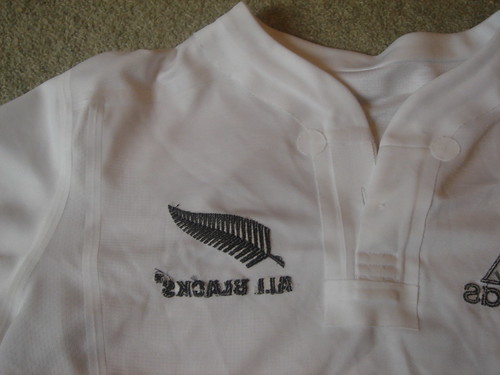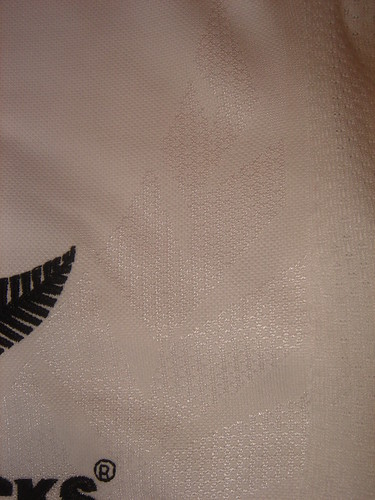The first:
There's something to be said for muscle memory. I saw it in the pre-match drills at the netball on the weekend. The odd mechanical motion of the Pulses' newbies, like their cogs haven't found the right groove. Compared to the smooth interactions and motions of the Silver Ferns in the team they were playing. The Magic look like Lamborghinis, effortlessly turning, accelerating, hitting full speed, then stopping instantly and doing it again.
The good teams, the really good teams, have a fluidity about them. And it's beguiling to watch. The (apparently) home crowd for the Pulse are doing a lot of cheering for the Magic. But why not, these players are amazing. Some are national sporting heroes.
So the biggest crowd the Pulse get all season is actually there to watch the opposition.
And really, it gets really dull supporting a losing team. How often can you happily clap and cheer when your team scores to be only 14 points down? How often can you keep writing the same story about them?
I talked to Penny Miles, netball reporter for the DomPost about this.
She talked about how it becomes hard positioning the story each week. You can't just keep reporting that it's a young team and that the combinations are taking time. And at some point the team of lovable losers become just losers and the interest in "will this week be the first win?" fades as it be comes clear that the answer will always be "no".
But how did they get themselves into this hole, two entire seasons without a single victory (because let's be honest, it's a pretty difficult thing to achieve. The answer is, of course, money (Penny has a very good article on this in the DomPost today but there doesn't seem to be an online version). In an evil spiral one begets the other. Win and you get sponsors, don't and you lose them.
The Pulse are "the Pulse" and not "the [corporate name] Pulse" because they don't have a naming sponsor. They run on the smallest budget ($900,000), a board of volunteers and scrounge for players.
When Althea Byfield, the Pulses' tall Jamaican defender, didn't show for a few games rumours ran up and down the media bench that she wasn't being paid. Turns out it was a concussion, but it was interesting what the first thoughts were.
A losing streak is a hard thing to break: players don't want to play for a losing team; sponsors don't want to give money to a losing team; TV doesn't want to show a losing team (though the Pulse have actually had quite good coverage this year); and nobody wants to be the team that loses to the loser.
And of course it's not just netball. Last season the National Football League in America saw something it hasn't seen since 1976. A team went through the entire season without a single win.
In 1977 the Tampa Bay Buccaneers beat the New Orleans Saints and their record went to 1-26. The win came in the 13th week of their second season. The team's woeful 0-14 first season has become the stuff of legend. Coach John McKay dealt with the woes with dark humour.
"Coach, how do you feel about your team's execution on the field?" "I'm for it".
The 2008-09 season saw a worse team emerge: The Detroit Lions. 0-16 is new single-season loss record; it is literally the new low. And for Detroit it doesn't get better.
The Pistons are no longer dominant in the NBA. The Tigers are back to their losing ways. And the Red Wings (The Steel City can always count on the Wings) lost the NHL title to the Penguins, even after a 2-0 lead in the series.
And don't forget Seattle. The Seahawks went to the Superbowl and then suffered injury and indignity. The Mariners finished last. And then the Sonics left for (of all places) Oklahoma City. Then to top it all off, this happened.
But the worst city is Cleveland. The Indians are a long way from being considered good. The Browns lost their franchise to Baltimore, got it back and proceeded to suck. And the poor Cavaliers don't seem to get a break (and it looks like LeBron will leave as soon as he can).
And once again were back at the endless cycle.
Teams that just can't win a game find it harder and harder to get the dollars to buy those good players. Beyond that players just don't want to be on a losing team. Look at this photo. That's Eli Manning, he's just been selected first overall in the NFL Draft by the San Diego Chargers, you can tell by his face that he's not happy about the whole thing. Luckily the Chargers traded him.
And so where does this lack of talent leave the fans? Do they constantly cheer to win enough games not to be relegated or sold? Do they turn up thinking that this game might be "the one"? Or do they, like the Pulse crowd last Sunday, cheer for the opposition? It gets very hard to applaud a score when you know the game is unwinnable. "Hooray, you really screwed up their points-differential!"
But for the Pulse at least Penny was optimistic. The new coach, Yvette McCausland-Durie, is enjoying the challenge; Centre Camilla Lees is a Silver Ferns possibility; Paula Griffin is a Silver Fern and looks like she might stay. But when I ask do they have a chance of pulling out a win this year, she shakes her head.




